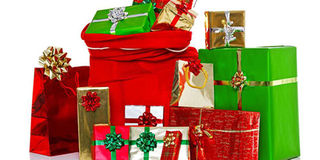The festive season is here. Try and get an ethical gift

As we are spreading cheer a gift at a time, we are also reducing our ecological footprint. PHOTO | FILE | NATION MEDIA GROUP
What you need to know:
- An ethical gift is one that takes into account how its production and consumption affects others and the environment.
- We all know that store in Gikomba that has items that look as good as new and are very inexpensive. How about making a trip there?
Festival parties are stealthily taking up space in our minds together with gift purchasing, which is synonymous with the Festive Season.
Most of us are expecting to give gifts to (and receive from) workmates, friends and family. If you are serious about gifts, you know how much thought is given to each one.
You study the individual you are to gift, their personality, what would impress them and finally, how much the gift will set you back financially.
However, there’s a new lens through which you must view gifts purchasing: The Ethical Lens.
OUTCOME
Every year, thousands of gifts are exchanged. How and where they were purchased are not appropriate questions to ask as a receiver of any gift.
A receiver’s role is to cheerfully accept the neatly wrapped surprise. However, as the gift giver, it is imperative that you ask this question: How ethical is this gift?
Responsible consumption and production is the Sustainable Development Goal 12. To achieve it, we urgently need to rethink and change the way we produce and consume resources.
With this in mind, gifts take on a whole new perspective and become moral. Thus, an ethical gift is one that takes into account how its production and consumption affects others and the environment.
FORMULA
Purchasing ethical gifts doesn’t make gift purchasing a chore but rather an adventure. It forces us to think outside the proverbial box and find out what else is “out there” besides buying new things.
Fortunately, there’s a template for us to follow created by Kat Black, the founder of an eco-friendly enterprise called Just Little Changes.
The template, in form of an overturned pyramid, is known as “The Ethical Hierarchy of Gift Purchasing”.
While purchasing new things is not entirely a bad thing, new things off the production line contribute to an increase rather than a decrease of our carbon footprint.
It is this school of thought upon which the ethical hierarchy is based. Production of new things uses new natural resources, which release new carbon into the atmosphere yet the gift may not be consumed in its entirety and could soon be thrown away, destined for Dandora where it will not only release more new carbon but could additionally cause other detrimental effects.
LEGACY
Our seemingly innocent actions affect other parts of the ecosystem. Ethical gift purchasing inspires us to practise environmental ethics, which denotes human beings are part of nature, not independent or lord over it.
The overturned pyramid consists of seven tiers of ethical gift ideas that promise to indulge your creativity. Layer number one is Giving Memories.
Like the name suggests, the gift is something that will create a lasting memory. It can be event tickets, gym or club memberships, and spa, manicure or pedicure treatments.
The second tier, Give Your Time, is about volunteering time and skills. Your gift could be pro-bono accounting or any other service to an upcoming start-up, visiting the elderly or babysitting for a couple that needs some alone time.
The third tier is Upcycle, aka creative reuse. This is converting old materials into new, useful ones with a new narrative and character.
REUSE
Worth noting is that upcycling is more energy efficient than recycling. Examples are turning wine bottles into beautiful flower vases or old jeans into sling bags. You don’t even have to do this yourself.
There are local people who earn a living from this. Purchase from them and celebrate their craft! The fourth one is Buying Second Hand.
We all know that store in Gikomba that has items that look as good as new and are very inexpensive. How about making a trip there?
Tier number five, Make. You can bake, knit items, draw, paint, or bead making a master piece with your own two hands.
The sweat that goes into creating this makes the gift more precious and timeless.
ENVIRONMENT
The sixth tier is Ethical Buying — purchasing an organic or locally produced item like coffee, baobab oil, peanut butter or handmade soaps.
The last tier is Buy Something New. When all else has failed, you can buy something new. Valuable gifts don’t have to be “stuff”.
Let’s get more creative and purposeful and forward-thinking. Such that, as we are spreading cheer a gift at a time, we are also reducing our ecological footprint.
Ms Wanjohi is the founder of Mazingira Safi Initiative. [email protected]





